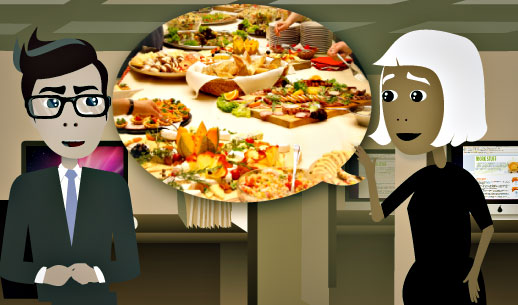“They had a spread like you wouldn't believe!”
Last week you went to a great party that was thrown by one of the companies that you do business with. You're telling your coworker, who didn't go to the party, about it. You want to tell him about all of the amazing food that they had at the party, so you say this.
They had a spread like you wouldn't believe!
Want Video and Sound? Follow us on YouTube

a spread (of food)
In casual English, "a spread" is a big table full of food that's being offered to guests at a party, a conference, for holidays, etc. This phrase brings to mind the picture of lots of different dishes spread out over a table. Use it like this:
Look at this spread! Oh my goodness, it must have taken you forever to cook all this.
They've got a pretty decent spread here tonight.
like you wouldn't believe
This is a phrase that means something like "a lot", "unbelievable", "amazing", or "horrible". Use it in casual speech when you're pretty excited or annoyed by something:
I have a pile of backed-up paperwork to take care of like you wouldn't believe!
This means "I have a huge pile of paperwork."
She's got artistic talent like you wouldn't believe.
This means "She's amazingly talented".
You can use "like you wouldn't believe" after a noun, as in the two examples given above. And you can also use it after a verb like this:
The soil here is great. The tomatoes have been growing like you wouldn't believe.
You should use "like you wouldn't believe" in casual spoken English, when you feel really energetic and you want to not only communicate your message, but also entertain your listeners. For example, it's good to use when you're telling a story.
